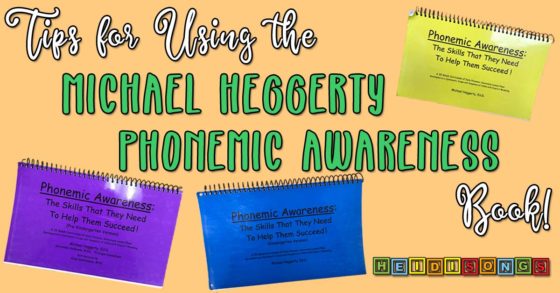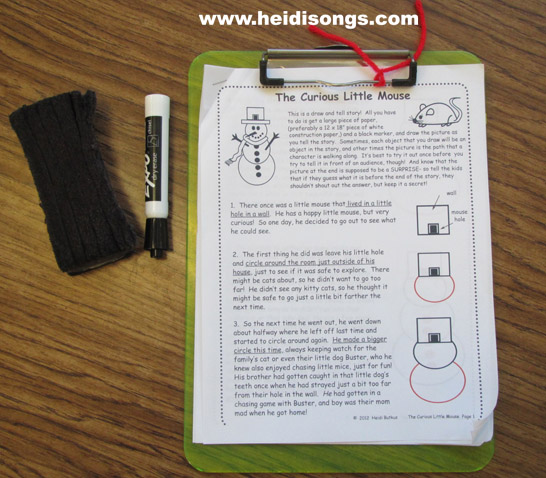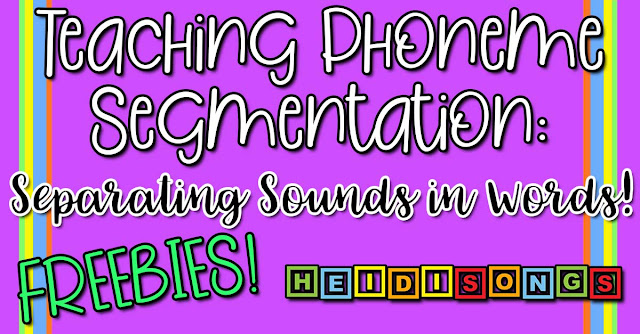First Day Notes and Parent Presentation
Have you heard the news? We've Moved to HeidiSongs.tv!
Our new website features an online video streaming service, updated blog posts at Heidisongs.blog, and a wealth of fresh resources designed to make learning even more fun and engaging.
You can also continue shopping for our educational products there and at our Teachers Pay Teachers store!
Head over to HeidiSongs.tv now and explore all the exciting new features.
See you there!
__________________________________________________________________________
Question: What types of notes does a Kindergarten teacher need to send home on the first day of school? What types of things do parents need to know?
In response to the question above, I have decided to post the papers that I send home with parents on the first day of school. I actually send all of these documents home in English or Spanish, as the parents wish. At my school, we have a meeting for the parents on the very first day. The parents are asked to stay for the first 45 minutes or so while we meet the children and take roll. After we read the kids a story and salute the flag, etc., we then send our children outside with our aides while we spend about a half an hour with their parents. We like doing this on the first day of school, since most families do usually come with their child on the first day. This maximizes parent attendance as we go through some important information and routines that they will need to know about. The document called, “First Day Overhead Notes” are notes that we give the parents that go along with our presentation to them. In it, you will see all of the things that I think are important to mention at this first meeting with the parents. We used to give this presentation on an overhead projector, but now I use my computer and an LCD projector, which is of course much nicer! I also included lots pictures of my students participating in field trips and other major events in the presentation, and the parents seemed to really like this a lot!
The “Checklist” document is the cover sheet that is stapled on top of the these additional papers: Important Information, Phone List, and Volunteers. I add other documents that the school requires to this packet, such as the Library Permit, the Electronic Use Permit (so that the kids can use the computer lab, etc.), Student Health Insurance Information, etc. I try to staple all of these together with the checklist on top, so that the parents know exactly what they need to send back the next day, or ASAP. This is much easier for me to keep track of when the children begin turning them in, since they usually come back all stapled together in a neat little packet. This especially helps me to know which paper belongs to whom, because in the past I have sometimes received papers that the parent signed but forgot to write the child’s name, leaving me to try to match the parent’s sometimes illegible signature with a child who might have a different last name! Stapling it all together is an extra step to complete at a busy time of year, but one that saves me time in the long run.
The Important Information paper helps me find information quickly when parents are late picking up a child, or if I have a quick question to ask. Also, sometimes contact information changes from the time a parent registers their child in April to the time they child starts school at the end of August. This seems especially true with cell phones that get turned on and off if a bill cannot be paid. So it is just a good thing to have on hand in any case, I think.
The Phone List is something that I do for my students each year that is strictly for my own convenience. I hate being in the position of being asked to pass out invitations to a birthday party to just a few of the children in the class, since this often leaves the other children feeling bad because they did not receive one. So the policy in our Kindergarten at my school is that no invitations may be passed out at school unless there is one for all. The parents are asked to give permission to have their contact information on this phone list so that invitations may be sent through the mail or communicated by phone. They can opt out of this list, of course. When I type if up for the class, I just write “unlisted” next to that child’s name. Then I type up another list that is complete for myself so that I can have a list at home and a quick list to consult at school if I need one.
The Volunteer sign up sheet is exactly that: a plea for classroom volunteers! I make sure that I tell parents how much I need them and what they might be doing if they sign up to help. Then I call each of them that expressed a desire to help regularly and schedule them right in. I LOVE having volunteers working with me in the classroom, and getting to know the families of my students!
I also pass out the children’s first homework sheet and Read Aloud Chart on the first day of school. I explain to the parents what the homework entails so that they will understand that much of it will be oral, and they will need to sign off on it each night as they complete it. This is important to mention, since often parents are looking for a worksheet for their child’s homework and don’t realize that this paper is, in fact, their child’s homework! Also, some folks are unfamiliar with the concept of a reading log, and this needs to be explained, just in case. They also need to know that the reading log is not an optional thing; their child’s participation is noted on the report card, and he or she will need assistance getting this done. Essentially, this is the “parent’s grade,” since the children are not usually able at this age to read alone and fill in the chart themselves. I always pass out homework on the first day of the school week, and collect it on the last day of the school week. I also let parents know that there will be important notes in the margins of their child’s homework sheet each week, and that they will need to be sure to read these notes to stay up to date on special events and things of that nature.
In response to the question above, I have decided to post the papers that I send home with parents on the first day of school. I actually send all of these documents home in English or Spanish, as the parents wish. At my school, we have a meeting for the parents on the very first day. The parents are asked to stay for the first 45 minutes or so while we meet the children and take roll. After we read the kids a story and salute the flag, etc., we then send our children outside with our aides while we spend about a half an hour with their parents. We like doing this on the first day of school, since most families do usually come with their child on the first day. This maximizes parent attendance as we go through some important information and routines that they will need to know about. The document called, “First Day Overhead Notes” are notes that we give the parents that go along with our presentation to them. In it, you will see all of the things that I think are important to mention at this first meeting with the parents. We used to give this presentation on an overhead projector, but now I use my computer and an LCD projector, which is of course much nicer! I also included lots pictures of my students participating in field trips and other major events in the presentation, and the parents seemed to really like this a lot!
The “Checklist” document is the cover sheet that is stapled on top of the these additional papers: Important Information, Phone List, and Volunteers. I add other documents that the school requires to this packet, such as the Library Permit, the Electronic Use Permit (so that the kids can use the computer lab, etc.), Student Health Insurance Information, etc. I try to staple all of these together with the checklist on top, so that the parents know exactly what they need to send back the next day, or ASAP. This is much easier for me to keep track of when the children begin turning them in, since they usually come back all stapled together in a neat little packet. This especially helps me to know which paper belongs to whom, because in the past I have sometimes received papers that the parent signed but forgot to write the child’s name, leaving me to try to match the parent’s sometimes illegible signature with a child who might have a different last name! Stapling it all together is an extra step to complete at a busy time of year, but one that saves me time in the long run.
The Important Information paper helps me find information quickly when parents are late picking up a child, or if I have a quick question to ask. Also, sometimes contact information changes from the time a parent registers their child in April to the time they child starts school at the end of August. This seems especially true with cell phones that get turned on and off if a bill cannot be paid. So it is just a good thing to have on hand in any case, I think.
The Phone List is something that I do for my students each year that is strictly for my own convenience. I hate being in the position of being asked to pass out invitations to a birthday party to just a few of the children in the class, since this often leaves the other children feeling bad because they did not receive one. So the policy in our Kindergarten at my school is that no invitations may be passed out at school unless there is one for all. The parents are asked to give permission to have their contact information on this phone list so that invitations may be sent through the mail or communicated by phone. They can opt out of this list, of course. When I type if up for the class, I just write “unlisted” next to that child’s name. Then I type up another list that is complete for myself so that I can have a list at home and a quick list to consult at school if I need one.
The Volunteer sign up sheet is exactly that: a plea for classroom volunteers! I make sure that I tell parents how much I need them and what they might be doing if they sign up to help. Then I call each of them that expressed a desire to help regularly and schedule them right in. I LOVE having volunteers working with me in the classroom, and getting to know the families of my students!
I also pass out the children’s first homework sheet and Read Aloud Chart on the first day of school. I explain to the parents what the homework entails so that they will understand that much of it will be oral, and they will need to sign off on it each night as they complete it. This is important to mention, since often parents are looking for a worksheet for their child’s homework and don’t realize that this paper is, in fact, their child’s homework! Also, some folks are unfamiliar with the concept of a reading log, and this needs to be explained, just in case. They also need to know that the reading log is not an optional thing; their child’s participation is noted on the report card, and he or she will need assistance getting this done. Essentially, this is the “parent’s grade,” since the children are not usually able at this age to read alone and fill in the chart themselves. I always pass out homework on the first day of the school week, and collect it on the last day of the school week. I also let parents know that there will be important notes in the margins of their child’s homework sheet each week, and that they will need to be sure to read these notes to stay up to date on special events and things of that nature.
That’s it! If you have any questions about any of these papers, just let me know!
----------------------------------
Follow me! Did you enjoy this post? Do me a favor and share it with your friends! And follow this blog by signing up for my email updates, or follow on Bloglovin', or follow me on TPT! I'm also on Pinterest, Facebook, Twitter, Instagram, Google+ and YouTube, too! Don't forget to sign up for our email newsletter (at the bottom of this page) for special deals and promo codes that you won't find out about anywhere else.









